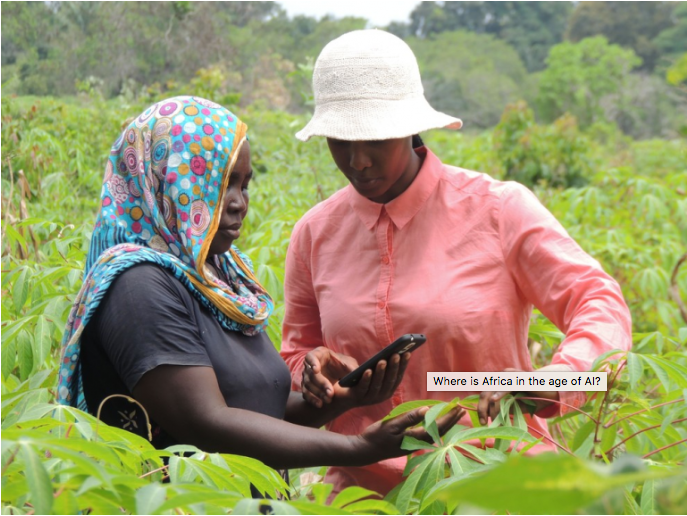When it comes to technology, Africa remains among the last in the race, it is said. However, this has given the continent a unique attribute, evident in its ability to leapfrog plastic money to mobile technology. With the example of Safaricom’s M-Pesa, which is among the leading innovations of the transition, Africa is doing well on the financial inclusion front. The continent has tried to keep up with the rest of the world thanks to its continuous quest to harness emerging technologies such as artificial intelligence (AI).
Even though not all of Africa is yet to experience the emerging generative technology, AI, several countries are already seeing an increase in companies specializing in it, including South Africa, Nigeria, Egypt, Kenya, and Morocco. In Kenya, machine learning is used in agriculture, while in Zambia, it has been used in combating misinformation in elections, an indication that the potential of AI in Africa is immense. The number of companies specializing in AI in Africa has also grown to over 2,500 since 2017.
According to John Kamara, co-founder of Afyarekod, a digital health data platform, Africa is in a great position to drive and embrace AI. “The free flow of data across various sectors, as well as the big companies coming to Africa, supports the growth of the start-ups in AI and helps governments understand the value of investment in AI,” he said.
With digital transformation accelerating at a first-rate – technology has advanced faster than tech regulations -, how to regulate AI, for example, has been a hot topic as governments try to find ways to fix the dangers that come with the new tech. Given that the US solved this problem by agreeing with Microsoft and Google to self-regulate, Africa can take a leaf as far as harnessing and regulation AI is concerned. If Africa fail to move speedily to take a more active approach to the development of the tech, it will just be an ordinary user.
There is also a need for investment in AI-related projects as well as financial support from the government, private sector, and external investors to ensure innovation in the AI field. The finance will be crucial in improving the insufficient infrastructure. Data is key for the success of AI applications. Therefore, the lack of a structured data ecosystem is a huge disadvantage to Africa. Data collection in Africa is usually poor, and even among the data that is collected, most of it is incomplete. Furthermore, most African countries do not have access to this data. African governments and telecommunications companies must work together to ensure accurate data collection and easy access.
Africa also needs to tackle the issue of lack of AI regulations. As generative AI technology has made it clear, AI can be terrifying as it can increase disinformation and encourage manipulation. For instance, this tech can produce serious threats if not regulated. In Africa, the threats can have enormous consequences not only for Africans but the economy as a whole.
“The rest of the world is occupied as the leading countries in AI focus on regulations; Africa can take this chance to tackle the issues that hinder it in advancing in AI and table the talk of regulations,” Jenny Kamini, a data analyst Jenny Kamini, said. Ms Kamini, however, notes that Africa should focus on leveraging the potential of AI rather than talk of regulations for now. While the generative tech can be used to spread misinformation, especially in countries without regulations, it is difficult to avoid the advantages it presents. That is why Africa needs a new opportunity to leapfrog to close the gap in the tech race.


